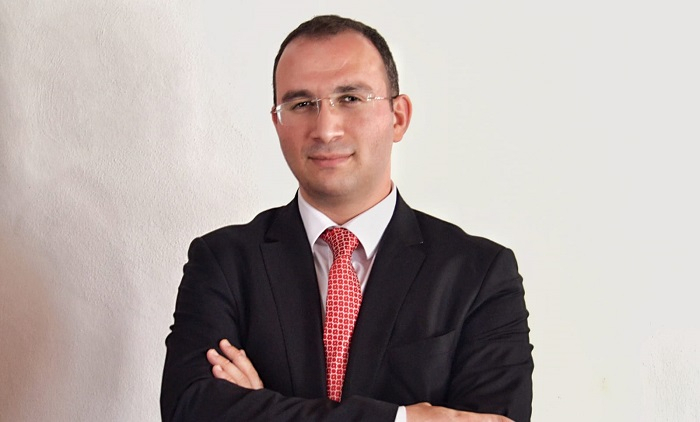Currently, the whole world is worrying about global inflation and rising prices. Turkish economist Nesat Gundogdu shared his views with AzVision on the causes and consequences of this process.
- Where do the roots of today's inflation go?
- The mortgage crisis that began in the US in 2008 had caused great mistrust in the international market. After that, the central banks started to increase their balance sheets. Consequently, global inflation set in. This inflation, brought about by the policies of increasing the quantity of money increasing money, affordability and investment promotion, will affect both the productive potential and the consumption capacity of the whole world, which means as the inflation rises, the consumption capacity of people whose incomes do not increase will inevitably decline. As a result, the global economy is shrinking.
- What are the positions of Azerbaijan and Turkey in the current situation?
- The "One Belt One Road" project launched by China in 2013, which sought to create an alternative force against the American economic power following the 2008 crisis, became a great opportunity during the 2019 pandemic. In times of inflation, cheaper goods become irreplaceable for countries. Within the framework of the "One Belt One Road" project, cargo will be delivered to Nakhchivan via the Zangazur corridor, and from there to Turkey. For this reason, Azerbaijan and Turkey will increase their revenues compared to other countries.
No matter how many differences there are, the fact that the whole world is experiencing an energy crisis will inevitably continue to increase the value of the means of production. In this sense, if Azerbaijan, as an energy producer, can combine energy sources with the production process and do this in cooperation with Turkey, the two countries can find a place in global production.
The agreements signed during Turkish President Recep Tayyip Erdogan's visit to Baku can pave the way for this work. This would give impetus to integration in the Organization of Turkish States. The military cooperation, which began after the Karabakh victory, must be rapidly brough to the level of economic and, if necessary, the common market. Of course, the "One Belt One Road" project stands in the background.
- What awaits the world economy?
- Production competition will increase due to inflation. Foreseeing this, the United States, together with the G20 countries, began to pursue a policy of corporate tax stabilization. The movement, which started in 2012, was made possible by an agreement reached last year with the Organization for Economic Co-operation and Development (OECD). In other words, the US had already developed a long-term plan and was trying to prevent any problems from the West that would slow down its economy. With the acceptance of the corporate tax by the G20 countries, an agreement was reached that major American technology companies (Apple, Facebook, Microsoft, etc.) would pay taxes in the countries where they operate. This prevented the transfer of transnational companies to other countries.
Along with the energy crisis, the expansion in the balance sheets of central banks keeps inflation relevant. Nevertheless, other wars are going on in the background. Countries are striving to develop production models to balance the growing consumption trend in the world, to provide infrastructure. However, the most interesting thing is that everyone is doing it against the background of the phenomenon of globalization.
Globalization means providing access to all markets, all services, and no one intends to refuse this. It is difficult to say whether a new crisis will break out between the United States and China in the future. But I can say that a currency crisis is expected. Nowadays, questions arise about America's reserves to withstand the rising inflation. Could crypto currencies be an alternative? In addition, there is a digital currency developed by China. If reserve money appears, economic power will merge with political power. This is the issue America most fears and worries about. All these are topics for discussion in 2030.
Bakhtiyar Mammadov
AzVision.az
More about: #GlobalInflation















































